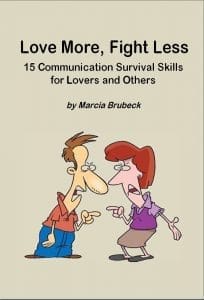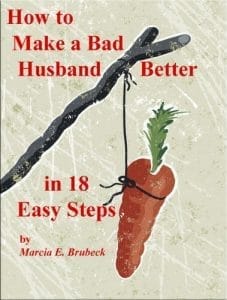
I Am Killing You Because You Are Killing Me
In the wake of the June 17 shooting at Charleston’s Emanuel A.M.E. Church, the nation’s journalists have expressed outrage, horror, and grief in words familiar from responses to past atrocities.
Dylann Storm Roof, denounced as a terrorist and a racist madman, may be put to death for his massacre of nine people. And yet the cure for senseless shootings seems no nearer now than it did half a century ago. In the interim many innocent people have died.
It is clearly not enough for us to condemn Roof’s actions or to demand the lowering of the Confederate flag or to call yet again for gun control. If we are to stop such carnage in the future, we must do more.
To find the answer we must, as a nation, engage in a dialogue, Northerner and Southerner, black and white and brown and yellow, rich and poor, old and young, mentally deranged and nominally sane, terrorist and patriot. Rather than merely argue or cast blame, we must learn from each other.
Roof and his kin can inflict their suffering only because we Americans have refused to acknowledge the role we all play. Before anything will change, we must understand how we collectively enable this senseless violence.
To discover our national stuck places, those involving race and others as well, we must not only speak but also listen even when we would rather not. We must embrace a new way of communicating with each other. Make no mistake, it will be a difficult conversation.
Difficult conversations can be seen as having three aspects: what happened, feelings about what happened, and identity issues. In national arguments with deep roots, an us-versus-them mentality characterizes both sides.
You, I, and the surviving parishioners might think Roof caused the problem in the Charleston church when he opened fire. He, on the other hand, accused African Americans of “raping [white] women and taking over the country.”
His words make it easy to dismiss him as crazed, someone who should not be taken seriously. We do so at our peril. It doesn’t matter whether his description of black people in our time is preposterous, because feelings and not facts lie at the root of the problem.
Could Roof’s anger and hatred have been relieved before he ever set foot in the church? Until we hear the feelings—not just his but also those of his tacit supporters, people who stand to benefit from his actions—the massacres will not stop.
If Roof alone were responsible, his crime would be an isolated occurrence. Such disasters, with or without the racial component, have become a regularly recurring feature of our national landscape. It is not enough to label them and deplore them.
Until we identify contributing factors and appropriate fixes, we cannot change the future. Crimes and culprits don’t spring out of thin air. Social problems occur within a broad historical and cultural context. We can punish the criminals, but we must still look unflinchingly at the larger picture.
Now, I am just an old lady therapist sitting at a keyboard without access to all of the disadvantaged people whose voices should be heard. I can only conjecture about what they would say if they were asked how they felt about life in America today.
The real point here is that someone needs to do the asking, someone else needs to report the responses, and each of us needs to stop contributing to distress that is not our own but that will take an unbearable toll if left unchecked. All voices need to be heard, or we will all be sorry.
If eliminating hand guns reduces violence, we need to discover the feelings underlying the constant opposition from the National Rifle Association. This fight is not really about the right to bear arms as guaranteed by the U.S. Constitution. The dispute is more likely about who makes national decisions and how, with a large group feeling left out of the process.
Who benefits, apart from the manufacturers of firearms, when handguns can be bought in stores and on the streets? When we fail to implement gun control, aren’t the opponents silently supporting the outlaws intent on slaughter? What are they feeling?
We as a nation could provide readily available and effective mental health care for everyone, regardless of ability to pay. If access to such care would prevent psychotic individuals from committing acts of violence, who stands to benefit from withholding it? It’s not just the for-profit insurance industry.
Isn’t the failure to adopt single payer health insurance a reflection of our collective unwillingness to accept a progressive income tax? When people with a history of violence who have been diagnosed with schizophrenia are on the streets, we are all at risk. What feelings are at work here?
The intractable problem of terrorism, domestic and international, may reflect the long-standing, calcified anger of underprivileged groups that feel powerless to stop Americans from robbing the global many in order to reward the affluent American few. If so, has our sustained arrogant and reckless conduct lost us the chance to hear the feelings of the injured parties?
African Americans are not alone in having been targeted for hatred and persecution in the United States. Other groups united by race, ethnicity, religion, gender identity, or sexual orientation have also suffered terribly. What feelings drive the brutality?
Do some of us perhaps condemn in other people qualities that we cannot abide in ourselves? Perhaps we despise weakness and dependence because we are afraid to see ourselves as less than strong and independent at all times.
By beating up on others we try to reassure ourselves that we are better or more powerful than they are. Within ourselves we recognize only virtues. We want to believe that how we are is the only way to be.
We ask ourselves, Am I capable? Am I a good person? Do I deserve love? We don’t want to hear any answer except yes. In our pursuit of complete affirmation, we may deny that any negative feedback applies. Or we defend ourselves by exaggerating our virtues.
We are not always good. We are inevitably better at some times than at others. We are merely human.
Collectively, we tend to sidestep feelings. But they lie at the heart of the matter and leak into disputes like it or not, often bringing conversation between us to a halt anytime what you said upsets me.
The urge to blame someone else can mask a deep-seated desire to avoid looking within. But feelings are important, whether they are mine, yours, Roof’s, or someone else’s. They are ordinarily not tidy and pure but a messy custom blend. Accepting them does not mean we must also accept destructive ways of expressing them.
Everyone has a distinctive story to tell. Yours and mine should both be heard. Both may be right. To see that this is so, we must actually listen to each other rather than simply courting agreement with our own views.
To become good communicators and good citizens we must be able to recognize and accept our personal identity issues as they surface. We can console ourselves with the knowledge that everyone makes mistakes, that intentions are often partly good and partly bad, and that any given problem reflects the contributions of many people and not just one.
The criminal justice system will deal with Roof. But to stop terrorists, keep madmen from going on killing sprees, wipe out racism, and end our bitter civil war at long last, we must reach out to each other, hearing more than support for our own personal feelings and beliefs.
While we are each unique, we all have more in common than not. To save ourselves we must ask some searching questions, hear some unwelcome answers, and find ways to integrate everyone’s experience into our collective narrative.
The ideas voiced here draw on the work of the Harvard Negotiation Project. See Douglas Stone, Bruce Patton, and Sheila Heen, Difficult Conversations: How to Discuss What Matters Most (New York: Penguin, 2010).





